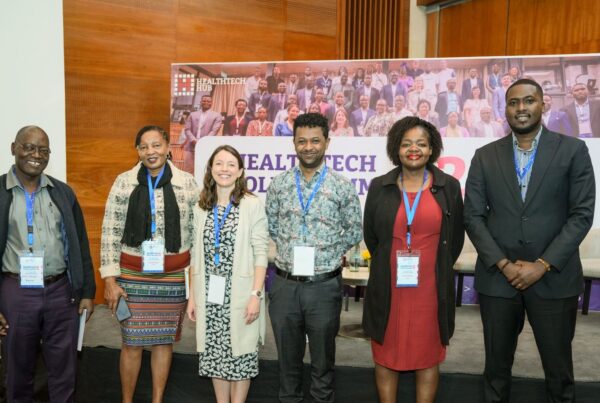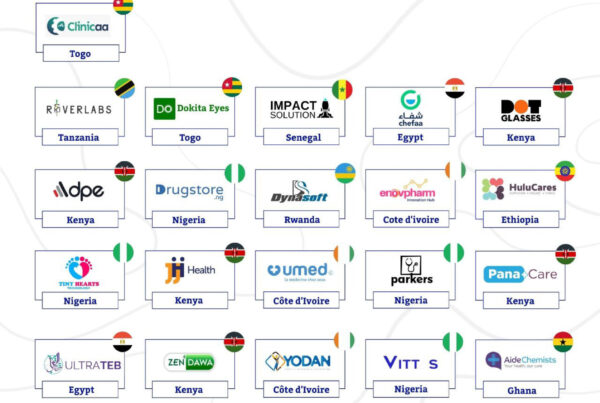Innovation thrives on information. At our recent HealthTech Policy Summit 2025 in Addis Ababa, a critical truth emerged: for healthtech to truly flourish, there is a need to bridge the gap between innovators and the data that drives impactful solutions.
The pervasive culture of “data hoarding” often creates a frustrating bottleneck for innovators, who endure long approval processes just to access information. This delay can render even the most perfect data useless if it arrives too late.
However, the tide is beginning to turn. In Uganda, for example, the government is developing a National Health Observatory (NHO) to make public health data, such as malaria trends and maternal mortality rates, available in downloadable formats. This shift toward open data empowers innovators and researchers to analyze trends, build evidence-based solutions, and ultimately, inform public policy.
The principle, as noted by Milani Wolmarans from the Ministry of Health in South Africa, is to use data as an enabler for development, rather than a stumbling block. The National Health Intelligence Center in Rwanda also serves as an example of this, where data from over 45 different healthcare systems is converged into a central repository to inform policy decisions.
The COVID-19 pandemic provided a powerful lesson in the value of open data. During the crisis, the public and private sectors worked together to make COVID-19 data publicly available, as there was a shared vision and a common goal. This experience highlights how, when political will and public demand are aligned, data can be a powerful tool for collective action. Similarly, Dr. Wisdom Atiwoto from Ghana noted that while healthtech has traditionally been acquired by the government, startups can now directly provide services to citizens using their own technology platforms.
For Africa’s healthtech ecosystem to produce results, as many policymakers at the summit noted, we must move past the fear of data being used “against” the governing structures. Instead, we should embrace transparent data governance frameworks that provide clear guidelines on what information is shareable and what requires a formal request. By opening up public datasets, a new wave of innovation will be fostered, creating solutions that are not only effective but also aligned with national priorities.
As Nigeria’s Dr. Gbenga Ijaodole aptly put it, “Without data, you’re just another person with an opinion”. It’s time to equip our innovators with the facts they need to turn their opinions into impactful solutions.
Key takeaways from the summit:
Policy is a Guideline, not a Barrier: While policies and regulations provide a critical framework, they are not the sole determinant of success. Dr. Ayub Manya from the Kenyan Ministry of Health noted that innovation can progress even in areas where policies are still evolving. In such contexts, having strong contracts and a clear plan for capacity building ensures that innovations remain sustainable and aligned with long-term health system goals.
Building Partnerships from the Ground Up: Successful partnerships often start with understanding the needs of a community and building relationships with key “gatekeepers” who can influence decisions at all levels, even those without official titles. Salome Kimani, Chief County Nurse of Moranga County in Kenya, shared a case study of a successful partnership with the innovator Bena Care, which began with research to identify the community’s needs and then involved forming a technical working group with both county and company representatives. This approach ensures that the solution is relevant and that all stakeholders feel a sense of ownership.
Evidence is the Currency of Innovation: To gain the trust of policymakers and investors, innovators must be able to demonstrate the impact of their solutions with concrete data. This means framing proposals in terms of quality of service, equity, and cost efficiency. Dr. Meddy Rutayisire from Uganda emphasized the need for data to be “simple, action-oriented, relevant, and timely”. He suggested creating scripted PDF reports that can be easily shared via platforms like WhatsApp, allowing policymakers to quickly access relevant information without having to navigate complex dashboards.
Co-creation and Alignment are Crucial: Dr. Bereket Zelalem from Ethiopia highlighted the importance of co-creating solutions with governments from the beginning. This ensures that innovations are aligned with national priorities and that the government is invested in scaling them up. Ethiopia has even developed a “National Health Innovation Demand Articulation Document” that outlines its eight top national priorities, providing a clear roadmap for innovators seeking to partner with the government. Rwanda has a similar instrument, with its Health Sector Strategic Plan outlining five key pillars for innovation.
Beyond Philanthropy: The Case for HealthTech as a Business: Dr. Wisdom Atiwoto challenged the notion that healthcare is solely a social service, arguing that it is also a business with a complex ecosystem of technology, equipment, and infrastructure. He encouraged innovators to think about who the payers are and what they are willing to pay for, emphasizing that a strong business model is essential for attracting investment and ensuring the long-term sustainability of a solution. The ultimate goal is to transition from “digital health enthusiasm” to “digital health investment”.





